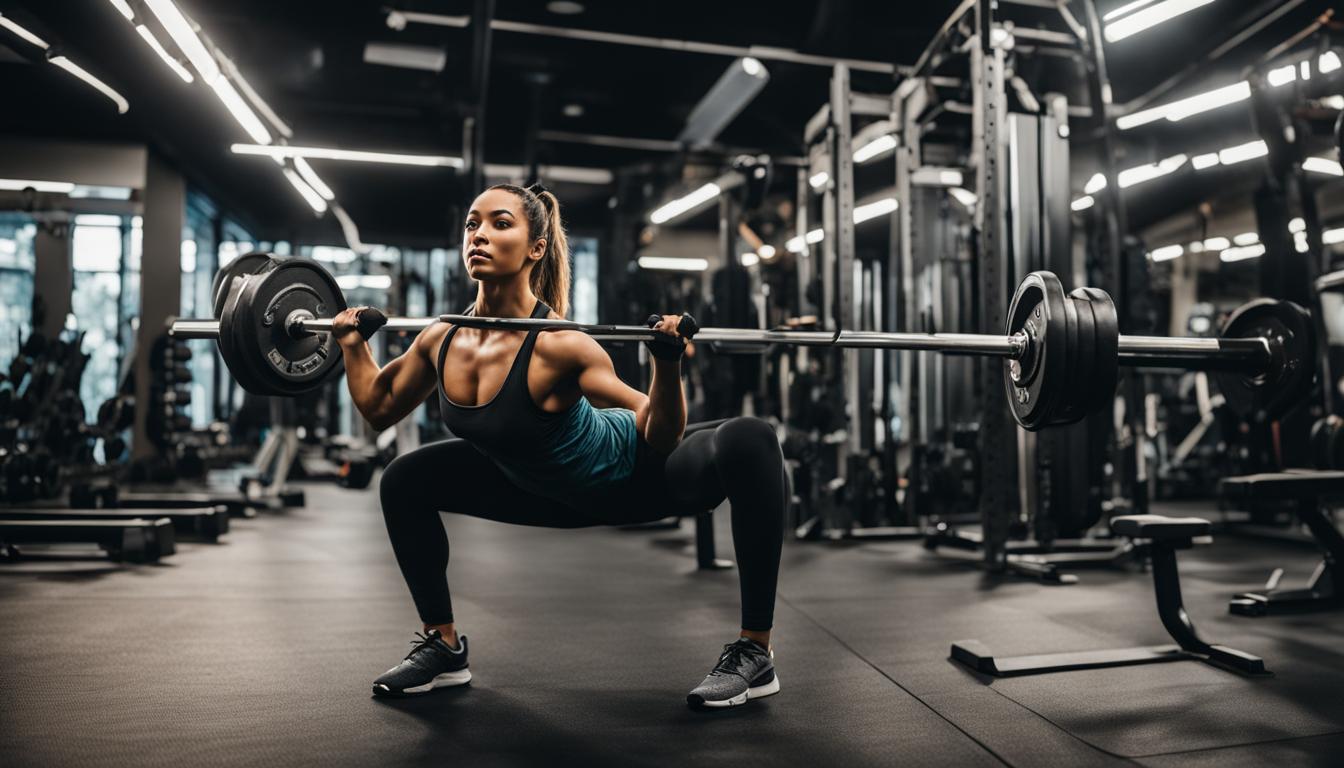If you’re a beginner looking to embark on a fitness journey, you’ve come to the right place. Starting a fitness journey can be both exciting and overwhelming, but with the right guidance and mindset, you can achieve your goals and transform your life.
In this comprehensive guide, we will provide you with valuable fitness tips for beginners, effective workout routines, and everything you need to know about starting your fitness journey.
Key Takeaways:
- Set clear and realistic goals to keep yourself focused and motivated.
- Assess your current fitness level to design a safe and effective workout plan.
- Choose physical activities that you enjoy to make your fitness journey more enjoyable and sustainable.
- Start slow and gradually increase the intensity to avoid overexertion and injuries.
- Incorporate strength training and cardiovascular exercise to optimize your results.
Define Your Goals
The first step in starting your fitness journey is to define your goals. This will provide you with a clear direction and motivation throughout your journey. Take some time to assess what you want to achieve, whether it’s losing weight, building muscle, improving flexibility, or simply leading a healthier lifestyle. By setting specific and realistic goals, you can track your progress and stay focused on your objectives.
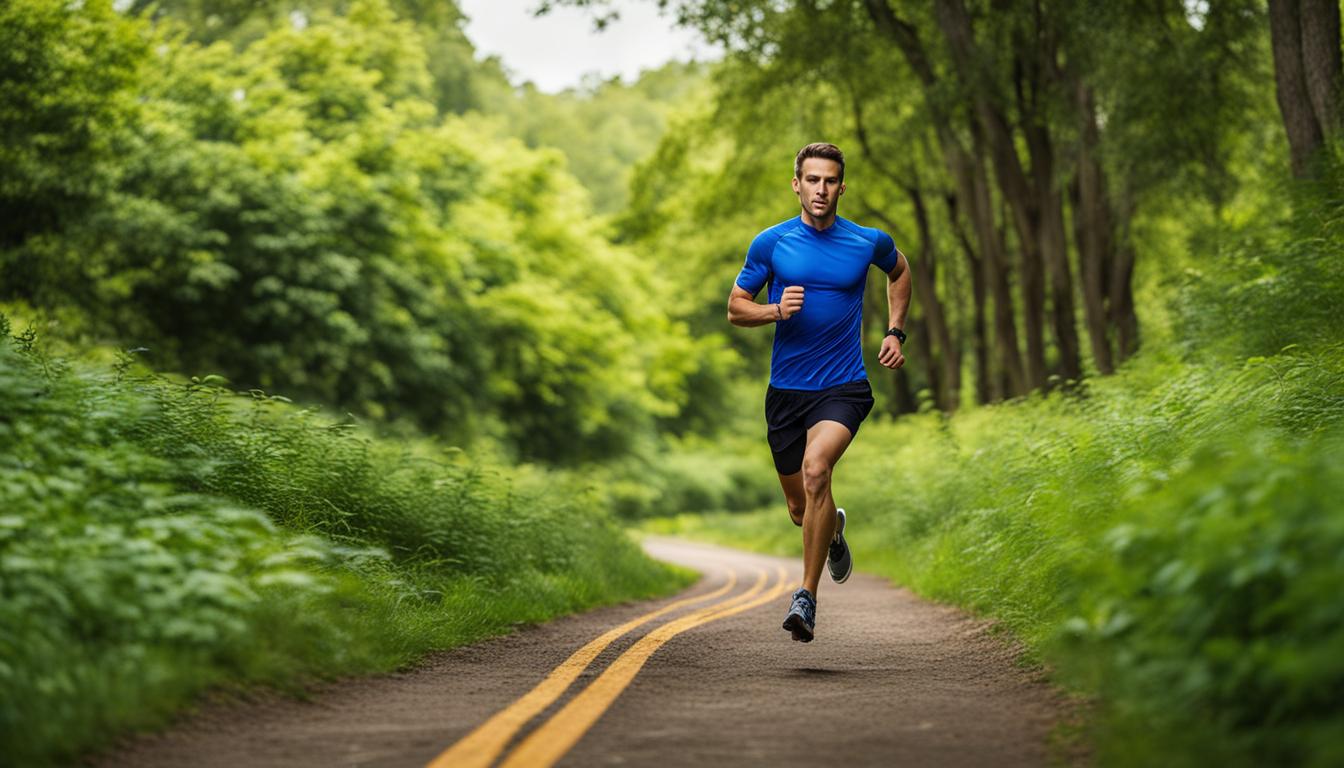
Remember, your goals should be personal to you and align with your individual preferences and aspirations. It’s important to choose goals that are achievable and within your reach. Starting with small milestones can help you build momentum and confidence, eventually leading to bigger accomplishments.
Setting Realistic Fitness Goals
- Be specific: Clearly define what you want to achieve, whether it’s losing a certain amount of weight or being able to run a specific distance.
- Make them measurable: Set targets that you can track and evaluate your progress against. This could be through recording your workouts or measuring your body measurements.
- Set realistic timelines: Give yourself enough time to achieve your goals without putting unnecessary pressure on yourself. Rome wasn’t built in a day, and your fitness journey will take time as well.
- Keep them achievable: Ensure your goals are within your capabilities and resources. Setting unrealistic goals can lead to frustration and disappointment.
- Revisit and adjust: As you progress in your fitness journey, regularly reassess your goals and make adjustments as necessary. This will help you stay motivated and continue challenging yourself.
Remember, the purpose of setting goals is not only to achieve them but also to build healthy habits and create a sustainable fitness routine. Enjoy the process and celebrate your achievements along the way.
Assess Your Current Fitness Level
Before starting any exercise routine, it’s important to assess your current fitness level. This will help you understand where you stand and tailor your workout plan accordingly. Performing a fitness assessment allows you to identify your strengths, weaknesses, and any potential health concerns that may need to be addressed.
One way to assess your fitness level is through a self-assessment. You can start by measuring your resting heart rate, which can give you an indication of your cardiovascular health. Additionally, you can perform simple tests like push-ups, sit-ups, and a timed walk or run to gauge your muscular strength and endurance. This self-assessment will serve as a baseline for tracking your progress and setting realistic goals.
“Assessing your fitness level is crucial as it helps you understand your starting point and progress over time. By identifying your strengths and weaknesses, you can develop a workout plan that targets specific areas and allows for steady improvement.”
If you have any pre-existing medical conditions or injuries, it’s important to consult with a healthcare professional before starting an exercise program. They can provide guidance on how to modify exercises or recommend alternative activities that are safe for you. Your health and safety should always be a priority, so don’t hesitate to seek professional advice when needed.
Key Points:
- Assessing your current fitness level is crucial before starting any exercise routine.
- Perform a self-assessment to gauge your cardiovascular health, muscular strength, and endurance.
- Consult with a healthcare professional if you have any pre-existing conditions or injuries.
- Use the results of your fitness assessment to track progress and set realistic goals.
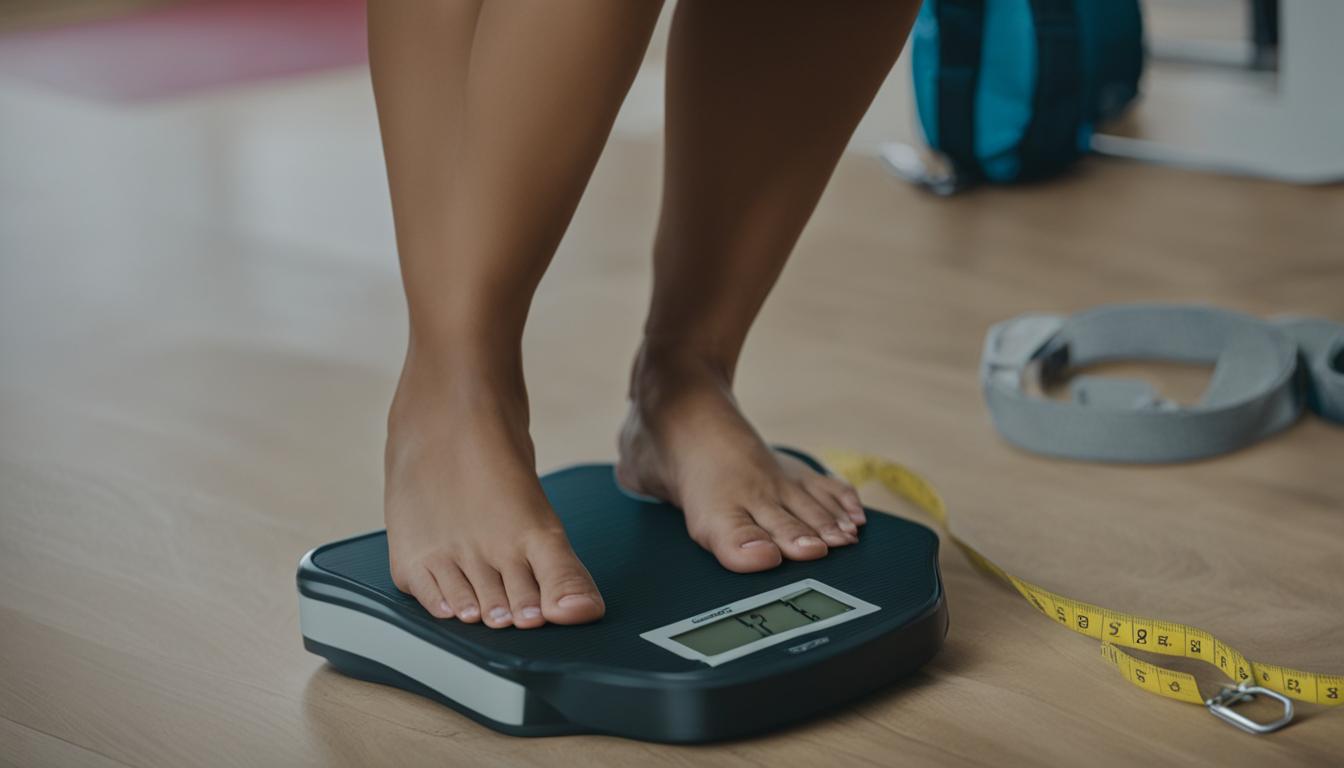
Taking the time to assess your fitness level will give you valuable insights into your body’s capabilities and limitations. It will also help you create a customized workout plan that aligns with your goals and takes into consideration any existing health concerns. Remember, everyone’s fitness journey is unique, and by starting with a solid foundation, you’ll set yourself up for success.
Choose Activities You Enjoy
Fitness should be fun and enjoyable, especially for beginners. Don’t feel like you have to stick to traditional gym workouts if they don’t excite you. There are plenty of activities and exercises to choose from that can help you get fit and have a great time doing it.
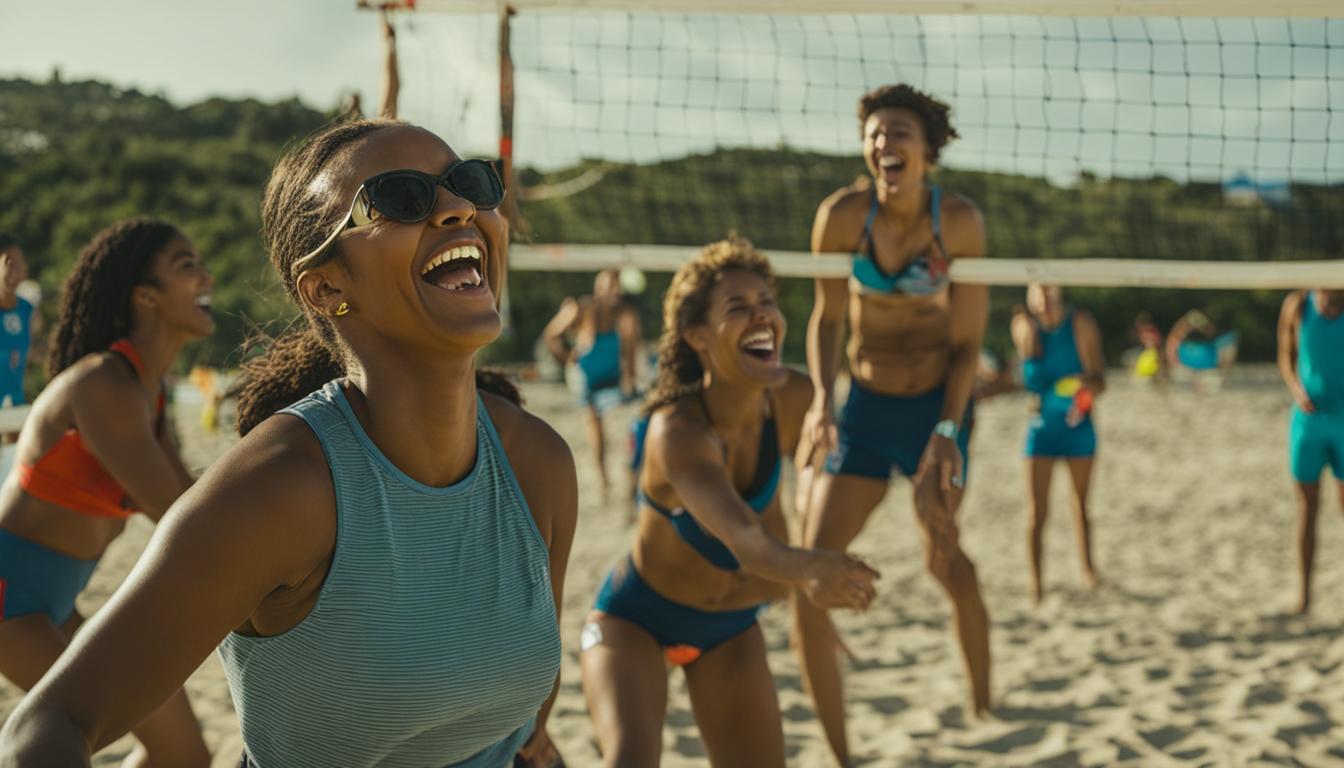
“Choose a physical activity that you genuinely enjoy. It could be anything from dancing to hiking to playing a sport. When you find something you love, it won’t feel like a chore, and you’ll be more likely to stick with it in the long term.”
Here are some ideas to get you started:
- Join a dance class, whether it’s salsa, hip-hop, or ballroom.
- Try outdoor activities like hiking, biking, or kayaking.
- Take up a team sport like soccer, basketball, or tennis.
- Explore group fitness classes at your local gym, such as Zumba or kickboxing.
Find What Moves You
Remember, the key is to find activities that make you feel alive and energized. Experiment with different options until you discover the ones that truly resonate with you. When you enjoy what you’re doing, exercise becomes less of a chore and more of a fun and fulfilling experience.
Starting Slow and Gradually Increasing Intensity
When beginning your fitness journey as a beginner, it’s crucial to start slowly and avoid overexertion. Embracing a gradual progression approach will not only reduce the risk of injury but also create a sustainable routine that you can stick to in the long run.
Start by incorporating moderate exercises that are suitable for your current fitness level. This could include brisk walking, light jogging, or gentle yoga. The key is to listen to your body and respect its limits.
“By starting with moderate exercises, you give your body time to adapt and build strength,” says fitness expert Jane Smith. “This approach allows for a smoother transition into more intense workouts, ensuring sustainable progress.”
As you feel more comfortable and confident, gradually increase the intensity and duration of your workouts. You can try adding short bursts of high-intensity intervals or challenging yourself with longer distances or heavier weights.
Remember, the goal is to find a balance between pushing yourself out of your comfort zone and avoiding overexertion. By gradually increasing the intensity, you’ll build strength, endurance, and confidence over time.
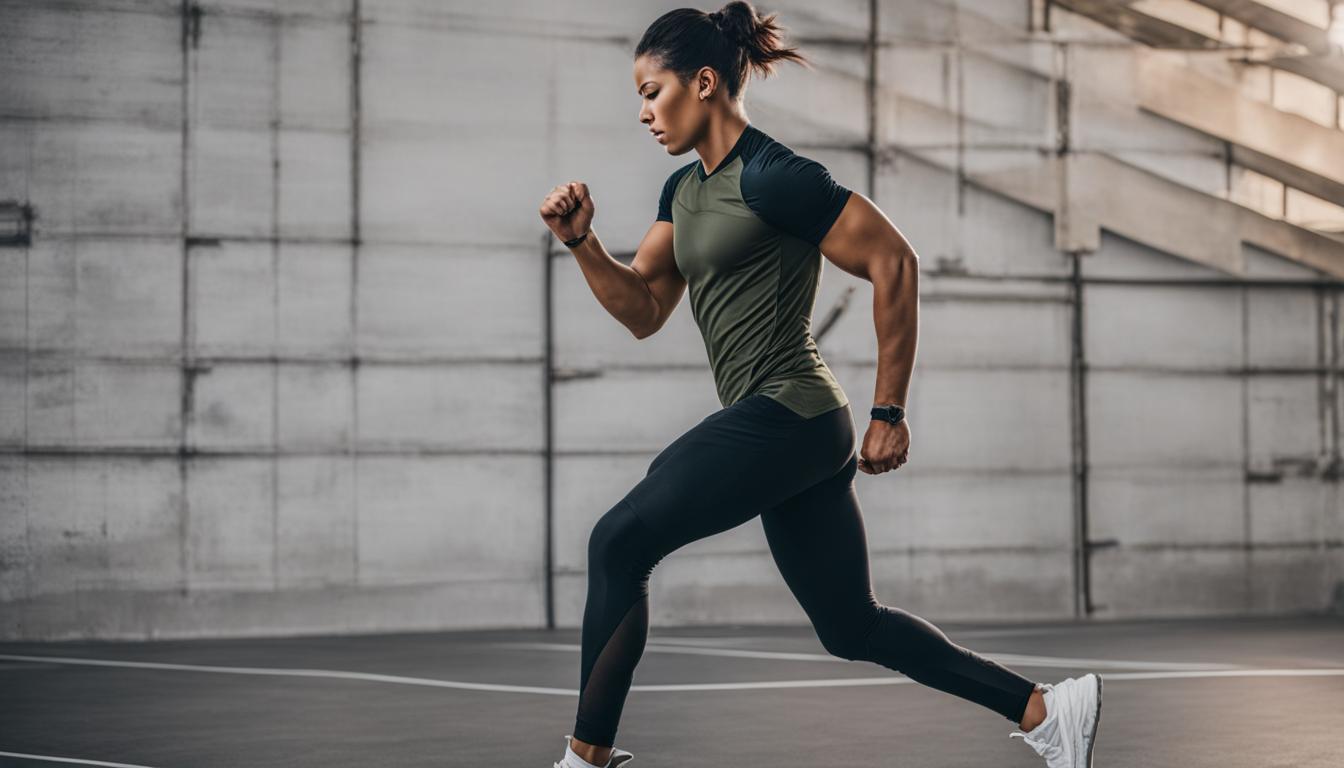
Additional Tips for Starting Slow and Gradually Increasing Intensity:
- Warm up before each workout with dynamic stretches and light cardio to prepare your muscles and joints.
- Pay attention to proper form and technique to ensure effective and safe workouts.
- Include rest days in your routine to allow your body to recover and prevent overuse injuries.
- Keep track of your progress and celebrate small milestones along the way to stay motivated.
Incorporate Strength Training
Strength training is a crucial aspect of any fitness journey, even for beginners. It not only helps build strength and muscle but also plays a significant role in improving overall body composition and boosting metabolism. The good news is that you don’t need fancy equipment or a gym membership to get started. Bodyweight exercises are a great way to incorporate strength training into your routine.
Bodyweight exercises are beginner-friendly and can be done anywhere, anytime. They allow you to use your own body weight as resistance, making them accessible and effective. Some popular bodyweight exercises include squats, lunges, push-ups, planks, and burpees. These exercises engage multiple muscle groups simultaneously, providing a full-body workout.
To make the most out of your bodyweight exercises, focus on proper form and technique. Start with a few reps of each exercise, gradually increasing the number of repetitions as you get stronger. Remember to challenge yourself without sacrificing proper form. If you find bodyweight exercises too easy, you can gradually add weights or resistance bands to increase the intensity.
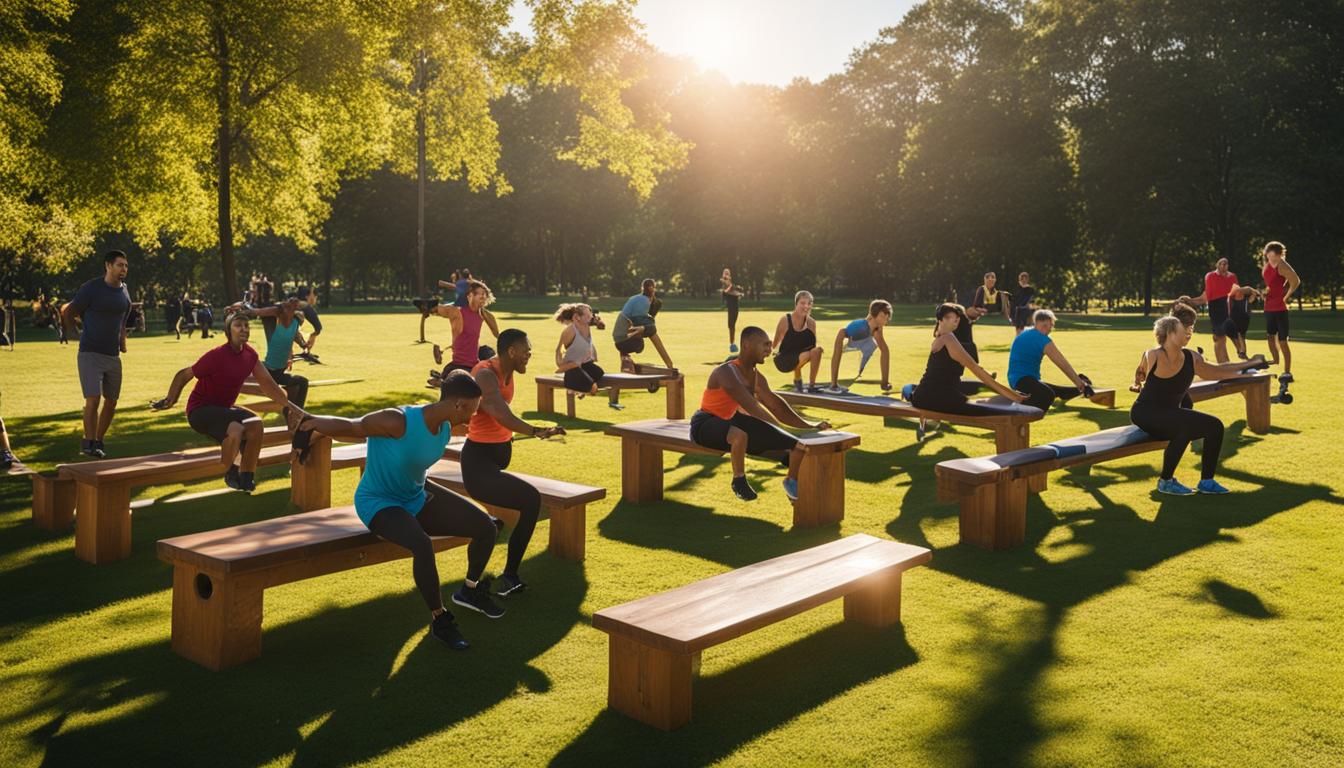
Benefits of Bodyweight Exercises for Beginners:
- They require little to no equipment or gym membership.
- They can be done at home or on the go.
- They engage multiple muscle groups for a full-body workout.
- They improve strength, endurance, and overall body composition.
- They can be modified to suit individual fitness levels and goals.
By incorporating bodyweight exercises into your fitness routine, you can lay a solid foundation of strength and set yourself up for success on your fitness journey. Remember to start slowly, focus on proper form, and gradually progress as your body gets stronger. Stay consistent, be patient, and celebrate every small improvement along the way!
Cardiovascular Exercise for Endurance
Improving cardiovascular health is an essential part of any fitness journey, especially for beginners. Incorporating cardiovascular exercises into your routine can help strengthen your heart, increase endurance, and burn calories. Whether you prefer low-impact activities or high-intensity workouts, there are plenty of beginner-friendly cardio exercises to choose from.
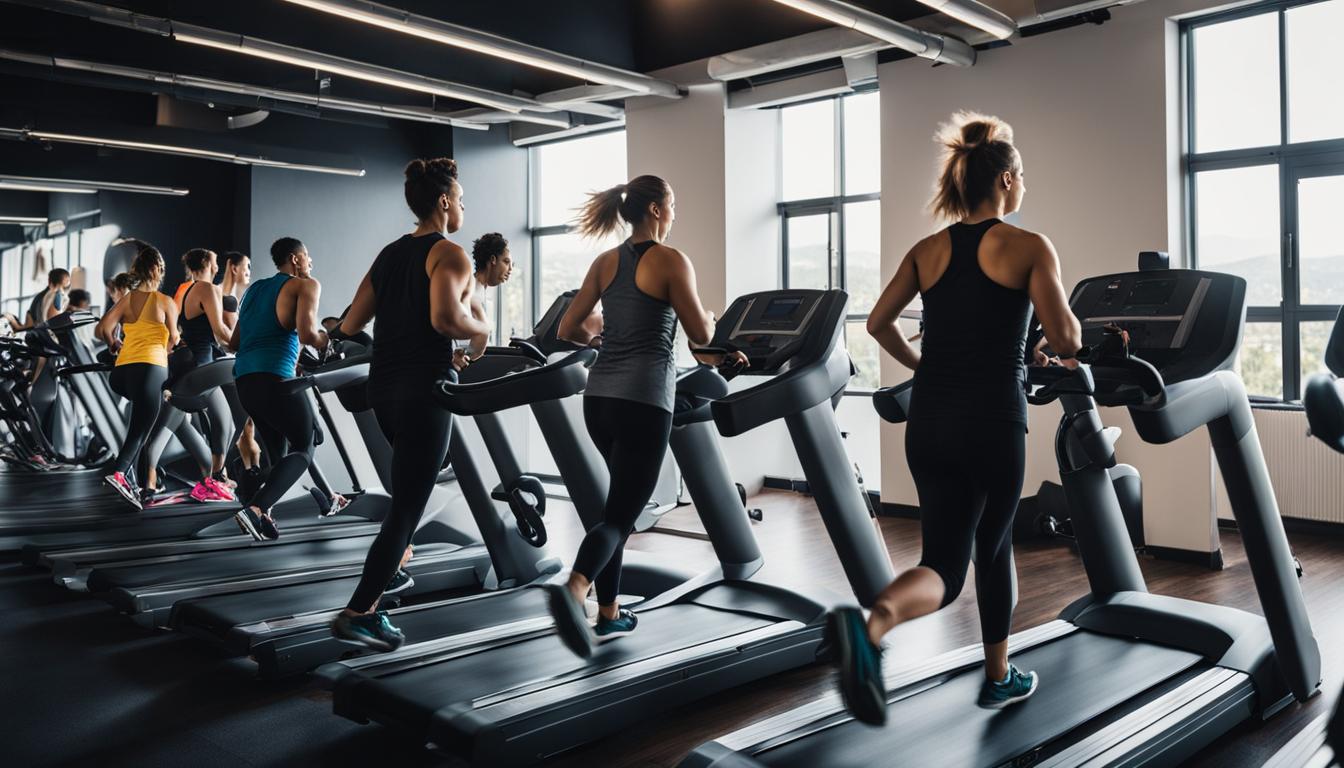
- Walking: Taking brisk walks is a simple yet effective way to get your heart rate up and improve cardiovascular health. Start with shorter distances and gradually increase the duration and pace of your walks.
- Jogging: If you’re looking for a more intense cardio workout, jogging can be a great option. Begin with a light jog for short intervals and gradually increase both the speed and duration of your runs.
- Cycling: Whether you prefer indoor stationary bikes or outdoor cycling, this activity is gentle on your joints and provides a fantastic cardiovascular workout. Start with shorter rides and gradually increase the distance and intensity.
- Dancing: Not only is dancing fun and uplifting, but it also offers an excellent cardio workout. Explore different dance styles such as Zumba, salsa, or hip-hop to find the one that brings you joy while getting your heart pumping.
Remember to choose activities that you enjoy to make your cardio workouts more sustainable in the long run. Aim for at least 150 minutes of moderate-intensity cardio or 75 minutes of vigorous-intensity cardio per week, as recommended by the American Heart Association. Stay consistent with your workouts, and over time, you’ll notice improvements in your endurance and overall cardiovascular health.
Pay Attention to Nutrition
Eating a balanced diet and adopting healthy eating habits are essential components of any fitness journey, especially for beginners. Proper nutrition fuels your body, supports your workouts, aids in recovery, and helps you achieve your fitness goals. Here are some key tips to keep in mind:
1. Focus on a Balanced Diet
Aim to include a variety of nutrient-dense foods in your daily meals. Fruits, vegetables, lean proteins, whole grains, and healthy fats should form the foundation of your diet. These foods provide the necessary vitamins, minerals, and macronutrients your body needs to function optimally.
2. Practice Portion Control
Pay attention to portion sizes to avoid overeating. Use smaller plates and bowls, and listen to your body’s hunger and fullness cues. Eating mindfully and savoring each bite can help you better gauge how much food your body actually needs.
3. Stay Hydrated
Don’t forget to drink enough water throughout the day. Staying hydrated is important for overall health, digestion, and exercise performance. Carry a water bottle with you and aim to drink at least 8 cups (64 ounces) of water daily.

4. Limit Sugary and Processed Foods
While it’s okay to indulge in treats occasionally, it’s important to limit your consumption of sugary and processed foods. These foods often lack nutritional value and can contribute to weight gain and other health issues. Opt for healthier alternatives like whole fruits, homemade snacks, and minimally processed foods.
Remember, nutrition is a key component of your overall fitness journey. By fueling your body with the right foods in appropriate portions, you’ll enhance your energy levels, improve your physical performance, and support your body’s transformation.
Conclusion
Embarking on a fitness journey as a beginner can be challenging, but it is a rewarding endeavor that can transform your way of life. By setting clear goals, choosing enjoyable activities, focusing on proper nutrition, and staying consistent, you can achieve remarkable results.
Remember, progress takes time, so be patient with yourself and celebrate every small achievement along the way. Starting a fitness journey can be intimidating, but don’t let fear or expectations hold you back. Take that first step towards a healthier and more fulfilling life.
Whether your goal is weight loss, muscle building, or simply improving your overall health, starting a fitness journey is the key. Commit to the process, embrace the challenges, and believe in yourself. With dedication and perseverance, you can achieve your fitness goals and create lasting positive changes.
FAQ
How do I set clear and realistic fitness goals?
Take some time to assess what you want to achieve through your fitness journey, whether it’s weight loss, muscle building, flexibility improvement, or simply leading a healthier lifestyle. Having specific goals will keep you focused and motivated throughout your journey.
How should I assess my current fitness level?
Perform a self-assessment to gauge your strengths, weaknesses, and any potential health concerns. If you have pre-existing medical conditions or injuries, consult with a healthcare professional before starting.
What are some enjoyable physical activities I can try?
Explore different types of activities such as running, swimming, dancing, cycling, or group fitness classes. Find what excites you the most, as this will increase your likelihood of sticking with it in the long run.
How should I start my fitness journey as a beginner?
It’s important to start slowly and avoid overexertion. Begin with moderate exercises and gradually increase the intensity and duration as your fitness level improves. Listen to your body and take rest days when needed to allow for proper recovery.
Is strength training important for beginners?
Yes, strength training is a vital component of any fitness journey. Start with bodyweight exercises like squats, lunges, push-ups, and planks. As you progress, you can introduce weights or resistance bands to challenge yourself further.
What are some examples of cardiovascular exercises for beginners?
Activities like walking, jogging, cycling, or using an elliptical machine can elevate your heart rate and burn calories. Aim for at least 150 minutes of moderate-intensity cardio or 75 minutes of vigorous-intensity cardio per week.
How important is nutrition in a fitness journey?
Nutrition plays a critical role in achieving your fitness goals. Focus on consuming whole, nutrient-dense foods like fruits, vegetables, lean proteins, whole grains, and healthy fats. Stay hydrated and avoid excessive consumption of sugary or processed foods.
What should I keep in mind when starting a fitness journey?
Starting a fitness journey as a beginner can be challenging but rewarding. Set clear goals, choose enjoyable activities, focus on proper nutrition, and stay consistent. Remember that progress takes time, so be patient and celebrate every small achievement along the way.

